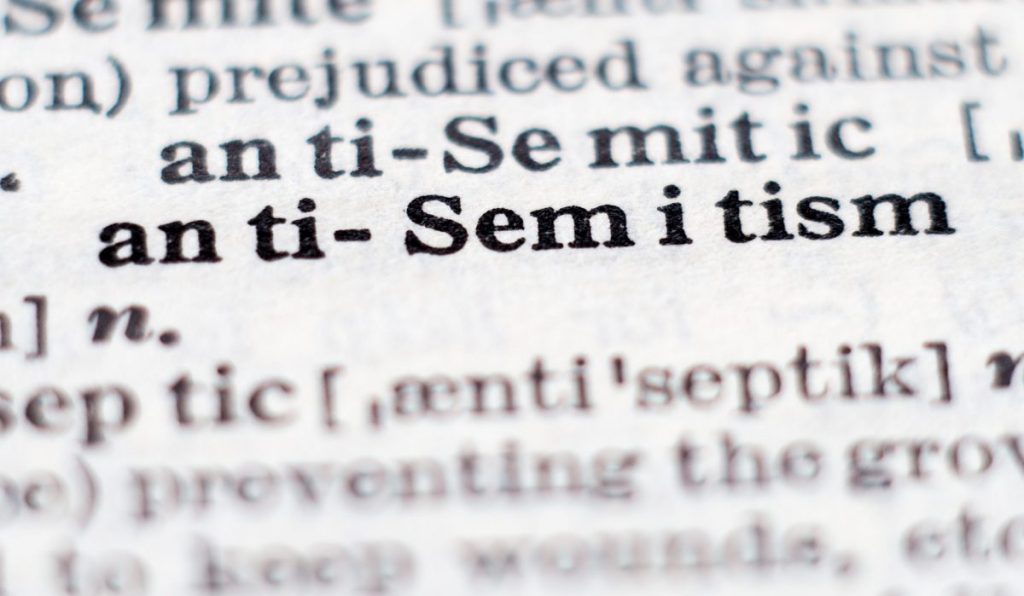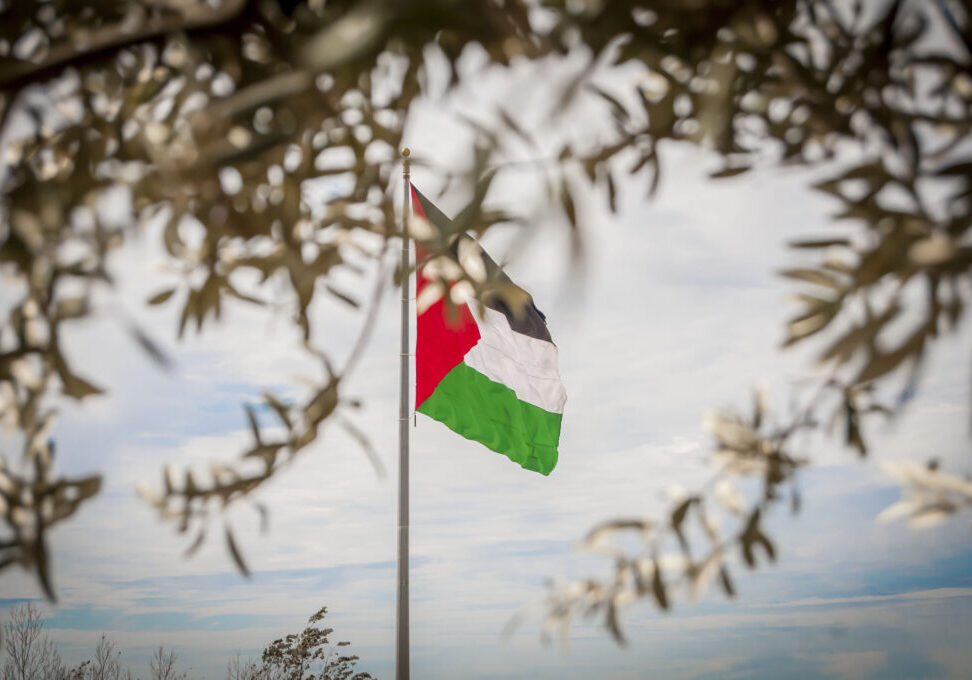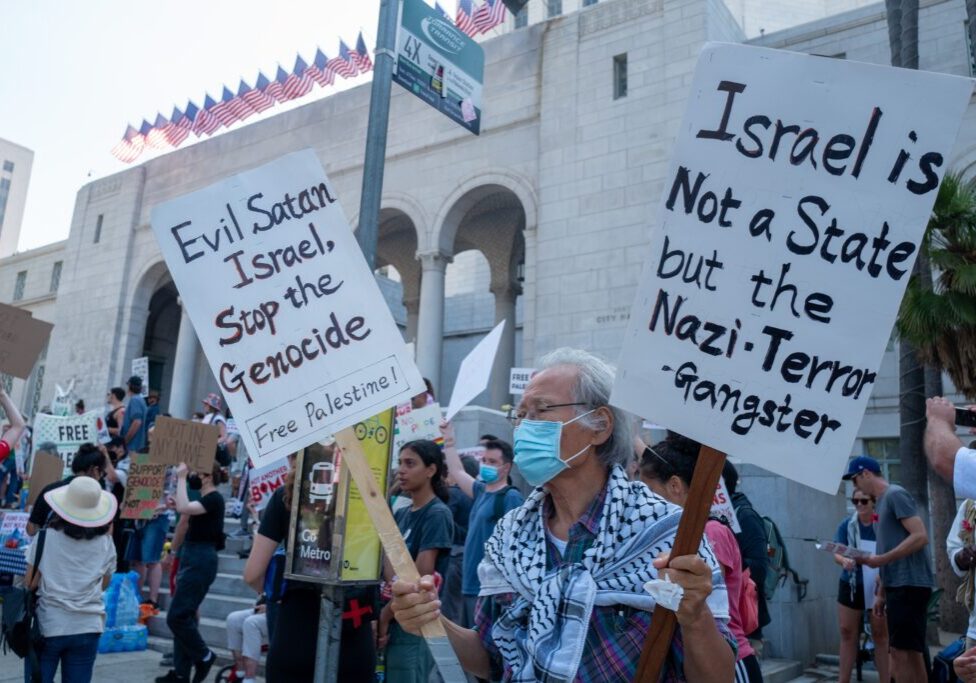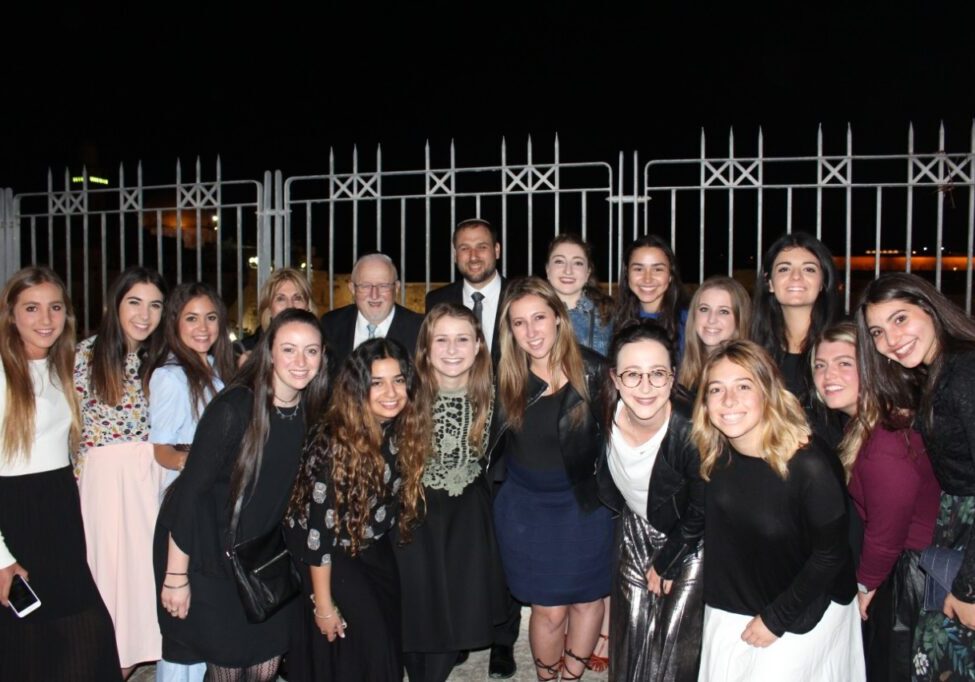Australia/Israel Review
Scribblings: Efforts to confront antisemitism distorted by proponents of an antisemitic conspiracy theory
Aug 28, 2023 | Tzvi Fleischer

If you were an institution trying to find ways to identify and counter Islamophobia, would you ask the National Federation of Australia Japan Societies for their insights? Would you consult the Atheist Foundation of Australia to help identify what is and what is not Islamophobic?
Of course not – if you have any sense. The National Federation of Australia Japan Societies simply has no relevant expertise or experience in dealing with Islamophobia as such. Meanwhile, the Atheist Association has aims that are antithetical to the beliefs that are dear to a vast majority of the victim group – in this case, Muslims.
Yet there is a bizarre belief out there that it is necessary to consult Palestinians, or pro-Palestinian advocacy groups, when discussing how to identify and counter antisemitism.
An example of this bizarre – and, as I will explain, ugly – trend came out of something La Trobe University Vice-Chancellor John Dewar announced on August 10. He wrote that a working group established for the purpose of considering university policies on antisemitism had decided to adopt the gold standard International Holocaust Remembrance Alliance (IHRA) working definition of antisemitism – but without the 11 examples in the definition, which are essential to applying it. Moreover, appallingly, the university also decided to adopt an alternative definition, “the Jerusalem Declaration”, which was developed by a group of fringe academics for the specific purpose of condoning certain types of antisemitic behaviour acknowledged as such by the vast majority of Jews worldwide.
The IHRA definition has been adopted by more than 35 democratic countries, dozens of other local and state governments and hundreds of institutions worldwide. The Jerusalem Declaration has been adopted by no governments, and perhaps a handful of institutions.
Moreover, La Trobe said its consultation process for reaching this appalling decision included AIJAC (whose role amounted to simply writing La Trobe an unsolicited letter urging adoption of the IHRA definition), three tiny far-left Jewish fringe groups and the Australia Palestine Advocacy Network (APAN).
It is bad enough that La Trobe apparently did not actually consult with any part of the mainstream Australian Jewish community in considering what to do about antisemitism. (Though the university did later claim to have consulted with the Australasian Union of Jewish Students [AUJS])
But what takes the La Trobe “consultation” on antisemitism beyond absurdity is the inclusion of APAN. Why on earth would you give a pro-Palestinian group a role in the process of considering what to do about antisemitism – that is, hatred of and discrimination against Jews – on campus?
The APAN website, which has a section on antisemitism, provides a clue to the answer. After condemning antisemitism and promising to fight it, the website goes on to say this:
We stand against the weaponisation of accusations of antisemitism: In recent years there has been a dramatic escalation of accusations of antisemitism towards people who support Palestine – from small solidarity groups to political leaders. These accusations are made not to enhance freedom, but to shut down discussion of Palestinian human rights.
Frankly, the claim that Jews “weaponise accusations of antisemitism” to shut down “discussion of Palestinian human rights” itself amounts to an anti-Jewish conspiracy theory.
The claim is not merely that some Jews make accusations of antisemitism when they are not justified in doing so. Jews are as prone to error as anyone else, so some doubtless do this. But this claim alleges an organised campaign, a deliberate strategy of “weaponisation”. Moreover, this conspiracy theory is widespread in Palestinian advocacy circles, and indeed, wider left-wing circles strongly sympathetic to the Palestinian cause.
Moreover, the IHRA definition is presented as part of this great “Zionist” conspiracy – including on the APAN website, which says the IHRA definition is being “revived” as “a political tool… used to stifle discussion of Israel’s treatment of Palestinians.”
As UK academic David Hirsh noted in last month’s Australia/Israel Review, Britain’s Equalities and Human Rights Commission (EHRC) found in a 2020 report that “Suggesting that complaints of antisemitism are fake or smears” was a type of antisemitic conduct that amounted to “unlawful harassment” of Jews. Yet believing in a deliberate Jewish campaign of fake antisemitism accusations is increasingly an essential part of a widespread worldview in Western societies, including Australia.
Now let’s return to the question of why an institution like La Trobe would think it appropriate to include APAN in its consultations about how to deal with antisemitism – when it would never include, as implied earlier, the National Federation of Australia Japan Societies or the Atheist Foundation of Australia.
What do Palestinians or pro-Palestinian groups know about antisemitism that these groups do not?
The only explanation that seems remotely plausible is that the University, or key figures who led its “working group” on antisemitism, believe in the conspiracy theory that APAN is pushing; namely, that Jews are deliberately deploying false accusations of antisemitism – “weaponising” them – to stifle criticism of Israeli behaviour toward Palestinians.
Only if you believe these accusations are real does it make sense to invite pro-Palestinian groups to weigh in on antisemitism on university campuses.
In other words, something recognised as antisemitic conduct by the UK’s Equalities and Human Rights Commission – not to mention virtually every mainstream Jewish group in the world – is currently distorting efforts to identify and crack down on antisemitism. And it is clear that this is occurring beyond university campuses as well; for instance, in media responses to complaints about antisemitism.
Given this reality, is it any wonder that a new survey by the Zionist Federation of Australia and AUJS shows 64% of Jewish students on Australian campuses say they have experienced antisemitism, while 57% say they have felt a need to hide their Jewish identity to feel safe? Or, indeed, that antisemitism has been increasing rapidly in almost all Western countries, according to numerous indicators?
Tags: Antisemitism, APAN, Australia, IHRA






